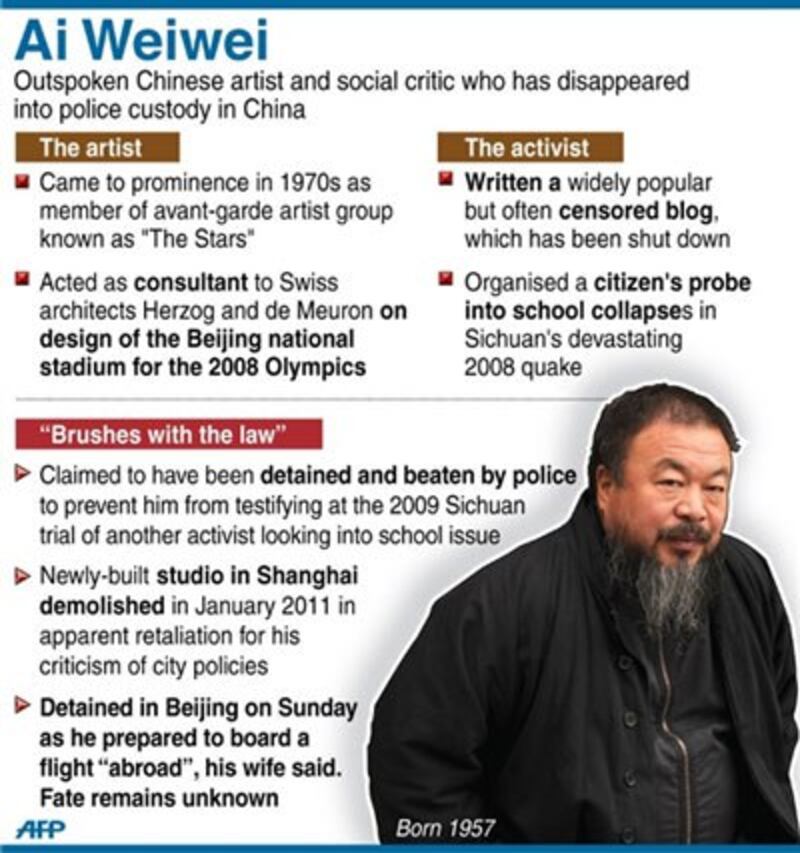China on Thursday confirmed it had detained prominent artist and social critic Ai Weiwei pending investigation for "economic crimes."
"According to my understanding, Ai Weiwei is suspected of economic crimes, and the police are in the process of investigating this," foreign ministry spokesman Hong Lei told a regular news conference in Beijing.
Hong brushed off recent calls for Ai's release from Britain, France, Germany, and the United States, whose outgoing ambassador Jon Huntsman mentioned Ai's detention in a speech on Thursday which was critical of China's human rights records.
"China is ruled by law, and proceeds with its affairs according to law," Hong said. "No other country has the right to interfere with this."
Ai has been missing since being prevented from boarding a flight to Hong Kong at a Beijing airport on Sunday.
"It has nothing to do with human rights or freedom of expression," Hong told reporters.
Chinese authorities sometimes try to silence critics by accusing them of tax violations or other nonpolitical crimes.
Activist artist

Ai is the most famous target so far in a recent crackdown on dissidents apparently sparked by anonymous online calls for a "Jasmine revolution" inspired by recent uprisings in the Middle East.
An official editorial said on Wednesday that his actions were "ambiguous" in law, and close to a "red line."
Ai, 57, is a top artist who helped design Beijing's Bird's Nest Stadium for the 2008 Olympics and is currently exhibiting his "Sunflower Seeds" installation at London's Tate Modern gallery.
An inveterate Twitter user, Ai has taken part in a number of campaigns to protect the most vulnerable in Chinese society, including an online memorial installation which recorded the names of thousands of children killed in the collapse of school buildings during the devastating 2008 Sichuan earthquake.
Unlikely accusations
Ai's mother, Gao Ying, said she thinks her son is unlikely to have committed any economic crimes.
"Of course I don't believe it," Gao said. "He is a self-employed artist. He doesn't engage in business."
"He has sold his work, but he spent the proceeds on launching a huge citizens' investigation and on creating more art works," she said.
"He spent a lot on that kind of thing."
Ai's wife, Lu Qing, said she had heard about the "economic crimes" charges in the media.
"I still haven't had any kind of information from the government about what law exactly he is supposed to have broken," Lu said.
"I can't comment ... They should really inform the relatives first," she said.
She said she had written to the Beijing police chief on Thursday to ask for immediate information about the reason for her husband's detention, his location, and state of health.
"There are 20 or 30 different sorts of economic crimes," Lu said. "There is tax evasion, fraud, and official corruption."
She said that many of them carry a maximum sentence of life imprisonment, depending on the amount of money involved.
Reported by Grace Kei Lai-see for RFA's Cantonese service and by Xin Yu for the Mandarin service. Translated and written in English by Luisetta Mudie.
